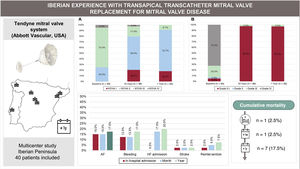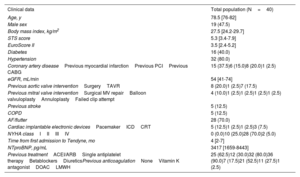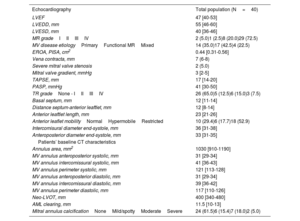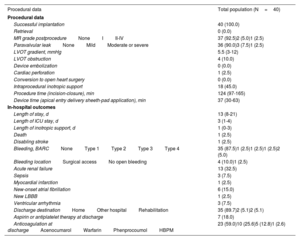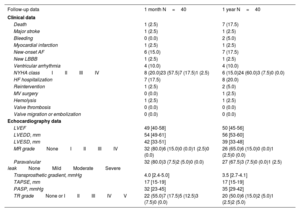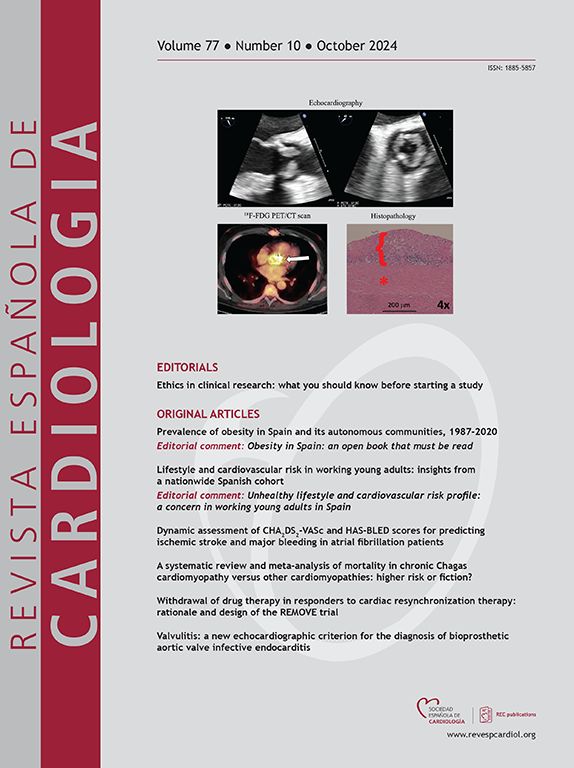
Transcatheter mitral valve replacement (TMVR) is an emerging treatment alternative for mitral valve (MV) disease in patients who were ineligible for surgical intervention or edge-to-edge repair. This study aimed to assess the short- and mid-term outcomes of this procedure.
MethodsWe conducted a prospective registry to include the initial experience with symptomatic, consecutive patients who underwent TMVR using the transapical Tendyne system at 7 centers in the Iberian Peninsula. Baseline clinical and imaging data, periprocedural information, and follow-up assessments were collected at 1 month and 1 year.
ResultsA total of 40 patients (mean age 78.5 years [76-82], 47,5% males) underwent TMVR. The majority had significant surgical risk, comorbidities, and advanced functional class. All patients had significant mitral regurgitation (MR), except for 2 with severe stenosis. Previous MV intervention and off-label indication for the procedure were present in 4 (10.0%) and 8 (20.0%) patients, respectively. Technical success was recorded in 100%, device success in 95.0%, and procedural success in 85.0% at 30-day. All-cause mortality was 2.5% and 17.5% at the 1-month and 1-year follow-up, respectively. MR reduction (≤ 1) and functional class improvement (NYHA I-II) were observed at 1 year in 93.9% and 87.9% of survivors, respectively.
ConclusionsTreatment with TMVR produced enduring resolution of MV disease and notable functional enhancement at 1 year of follow-up. The procedure demonstrated a satisfactory early safety profile, although 1-year mortality remained relatively high in this high-risk population.
Keywords
Identify yourself
Not yet a subscriber to the journal?
Purchase access to the article
By purchasing the article, the PDF of the same can be downloaded
Price: 19,34 €
Phone for incidents
Monday to Friday from 9am to 6pm (GMT+1) except for the months of July and August, which will be from 9am to 3pm






